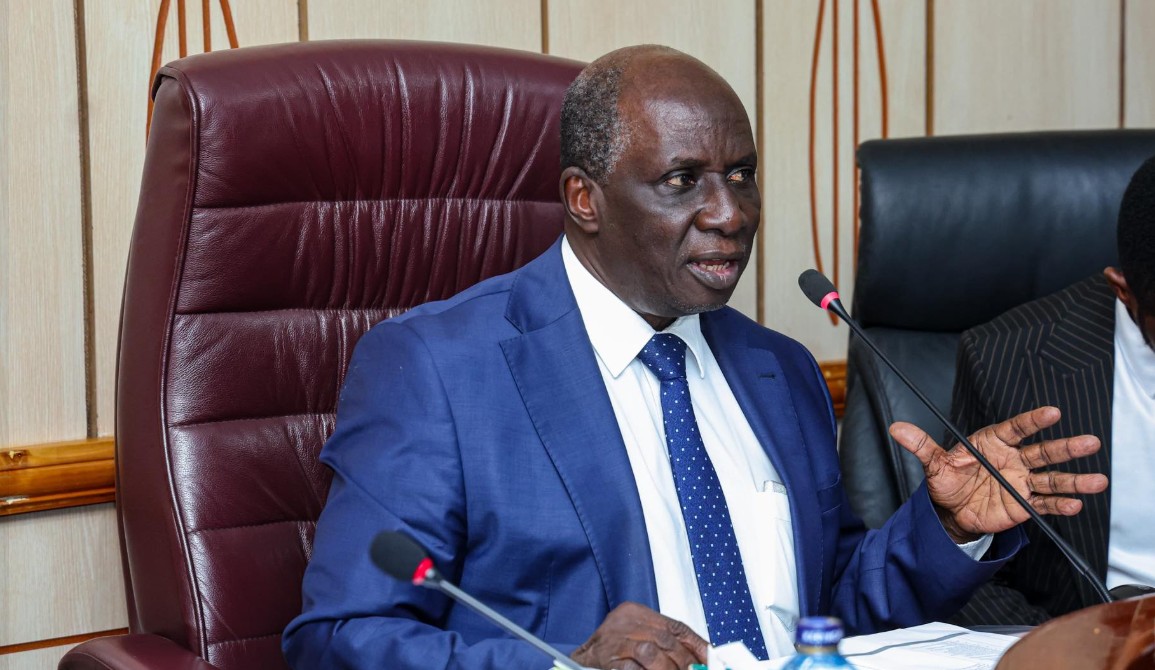MPs slam Ministry of Health over SHA failures, demand urgent reforms

MPs raised concerns that Kenyans are struggling to access services despite being registered under the new scheme, citing delays in claims, stalled automation and abrupt closures of some facilities.
Members of Parliament have slammed the Ministry of Health over persistent failures in the rollout of the Social Health Authority (SHA), warning that continued system breakdowns could cripple health service delivery across the country.
The National Assembly's Departmental Committee on Health raised concerns that Kenyans are struggling to access services despite being registered under the new scheme, citing delays in claims, stalled automation and abrupt closures of some facilities.
More To Read
- TSC confirms shift to SHA cover for teachers from December 1
- TSC sued over teachers’ migration from MINET insurance to SHA
- 1,567 injured police officers compensated, says Mwangangi as Senate pushes for transparency
- SHA announces refund process for mistaken M-Pesa premium payments
- Ruto defends health reforms, cites 27 million Kenyans registered under new coverage
- Ruto announces increase in cancer treatment cover to Sh800,000 under SHA from December 1, 2025
Led by Seme MP James Nyikal, the committee vowed to hold the Ministry accountable, stressing that improvements should be visible within a month if recommendations are implemented.
“We must ensure that even as changes are made, Kenyans continue to get services in public, private and faith-based hospitals. Closing facilities punishes patients, not those responsible for mistakes,” Nyikal said during a fact-finding mission.
The MPs criticised the phase-out of the now-defunct National Health Insurance Fund (NHIF), which left hospitals with unpaid arrears and no clear points of contact. They likened SHA to “a new wife in the home” whose operations are still being understood, warning that overreliance on automated systems without human support is locking out patients.
The committee, however, praised faith-based hospitals such as St Mary’s and St Elizabeth Mukumu for decades of providing affordable, high-quality care to vulnerable communities.
Despite this, they said persistent challenges have crippled hospitals countrywide, including Matata Nursing Hospital, Nyandiwa Health Centre, Rachuonyo Level 4 Hospital and Nyandiwa Level 4 Hospital.
“We have found that the systems for registration and claims exist, but they have not been well understood. Some claims are delayed, others are returned or rejected. The challenge is worsened by the fact that SHA does not yet have local offices; only NHIF branches remain, making follow-up nearly impossible,” Nyikal said.
He dismissed claims that some non-operational facilities had received SHA funds, saying investigations are ongoing.
“We cannot yet confirm whether some of the fraud claims are true. For instance, there was an allegation that Nyandiwa Health Centre had been paid. Yet, on inspection, we found it was only a proposed facility by the Homa Bay County Government. It is not operational and does not even have an account. However, we discovered another facility with a similar name in Suba South, which may have been the actual recipient of the funds. We are proceeding there to establish the facts,” he said.
He assured Kenyans that SHA will eventually function as intended and urged people to disregard negative reports.
“The system has potential; it is not yet performing as expected, but it is functioning in part, and we want it to work better. We encourage people to enrol now because once the system stabilises, those who are not members will be left out,” Nyikal said.
He supported Health Cabinet Secretary Aden Duale’s decision to submit the names of implicated facilities to the Directorate of Criminal Investigations, emphasising that innocent hospitals should not be punished.
Other committee members also reinforced the call for accountability and reforms.
“SHA is good, and it is working, but loopholes must be closed. We also need to devolve its operations so that counties like Homa Bay can resolve issues locally instead of everything being referred to Nairobi,” Kisumu Central MP Joshua Oron said.
Lurambi MP Bishop Titus Khamala noted that corruption often involves collusion between patients and facilities.
“Fraudulent claims require a holistic approach, not just targeting administrators, but also confronting the culture of corruption that has permeated society,” he said.
Nandi County MP Cynthia Muge reminded Kenyans of Parliament’s oversight role.
“We are here as representatives, legislators, and overseers. Our goal is to ensure that SHA delivers universal health coverage as envisioned. We want Kenyans to have confidence that we are listening to them and will make sure the system is improved,” she said.
Ndhiwa MP Martin Owino warned against reverting to NHIF and urged protection of maternal and child health services.
“NHIF is gone and will not return. We resolve that SHA must work for the people. When institutions clash, it is ordinary Kenyans who suffer. If teething problems are not fixed, people will lose confidence and turn to unsafe alternatives like self-medication. Even as we address system failures, facilities must continue supporting mothers. No nation can survive without safeguarding the health of mothers and children,” he said.
The committee said it will compile its findings into a report to guide reforms. They, however, emphasised that while SHA shows promise, it must be decentralised, transparent and responsive to citizens’ needs.
Top Stories Today











































